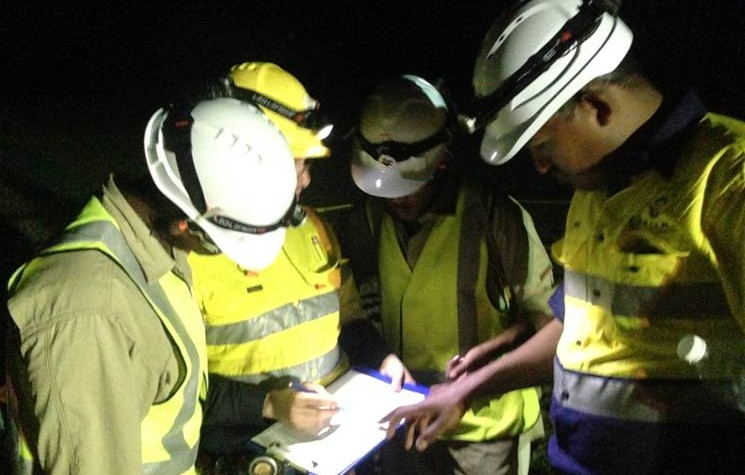South Boulder’s Premium Product Should Ensure A Robust Future For Colluli

By Alastair Ford
According to the headline for the announcement of pre-feasibility results, South Boulder’s Colluli potash project in Eritrea is “globally significant”.
To understand why, a closer look at the state of the global potash market is required.
“Colluli”, says South Boulder’s managing director Paul Donaldson, “is the shallowest known potash deposit globally.”
Not only that, but it’s relatively close to the coast of the Indian Ocean, and geographically well placed to feed the growth markets of the Arabian peninsula and South Asia.
So the route to market is clear. But it’s the nature of the product that South Boulder will be delivering into that market which is the real key.
“Colluli”, says Paul, “consists of three potassium bearing salts: sylvinite, carnallitite, and kainitite. The lion’s share is in the kainitite.”
Nonetheless, the original plan at Colluli was simply to mine the top layer of salts, the sylvinite, in a manner similar to the great Canadian and Russian potash projects. The end product would have been the standard potassium chloride product.
But there were problems with efficiency in that plan. “The sylvinite”, says Paul, “is contained in very thin seam. It gives you a very high strip ratio. When I joined that was one of our big challenges.”
That was around two years ago, following the departure of the man behind the initial thrust at Colluli, Lorry Hughes. “We set about using all of the salt”, says Paul. “And as we went on the journey of minimising the strip ratio we found that a combination of the sylvinite and the kainitite was ideal to produce potassium sulphate.”
Not the widely produced potassium chloride, mind, but the sulphate. And as far as the market is concerned that makes Colluli a different animal entirely, for one simple reason – there’s not enough potassium sulphate to go round.
The precise dynamics of the potash market are complex, but for a long time two virtual cartels kept price high, one run out of Russia and Ukraine, the other out of North America. The price of potassium chloride, that is. Over potassium sulphate they had less control, and even in those days of the virtual cartel potassium sulphate used to trade at a premium of over 40 per cent.
The cartel fell apart a couple of years ago as the Russian and Ukrainian interests fell out and started undercutting each other, which made the North American end unsustainable as well. But although that caused a crash in the price of potassium chloride, potassium sulphate was unaffected. These days, the premium for potassium sulphate over potassium chloride is well over 100 per cent, according to Paul.
“Fertilizer demand growth runs at about two per cent year-on-year”, says Paul. “But potassium sulphate supply has actually been contracting due to supply disruptions.”
So, all-in-all, it’s a good space to be in. Aside from Colluli there are only two new potassium sulphate projects in development, one by Intercontinental Potash, which is using an untried technology, and one across the border at Yara in Ethiopia. Neither are likely to disrupt the market in any major way.
Which leaves Colluli. South Boulder reckons it can bring Colluli into production for US$442 million, the first part of a two phase development that could eventually result in production running at 850,000 tonnes a year. Cumulative cash flow over a projected 30 year life is put at over US$5 billion, although there is room for expansion.
Easy to see why Paul is upbeat about the project’s potential. But there’s plenty of work to be done yet. A full-blown feasibility study is now getting underway, and should be ready in the third quarter of the year.
There’s still US$8 million in the bank, so the company has no immediate funding issues, but thoughts are already turning now to off-take and partnership deals. The aspiration would be to have such a deal in place by the time the feasibility study is complete, although at this stage there is nothing concrete to report on. “We are starting some serious conversations with potential investors in the project”, is all Paul will say, adding that any talk on the precise timing of such a deal is “speculative”.
But be that as it may, South Boulder has come a long way with Colluli in a short time. It’s not easy finding money in this market. But then, it’s not easy find potassium sulphate either.

Comments (0)